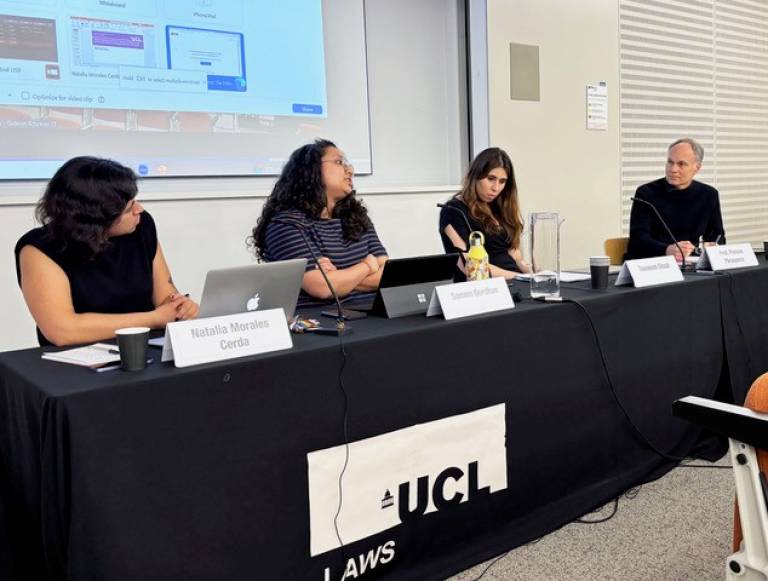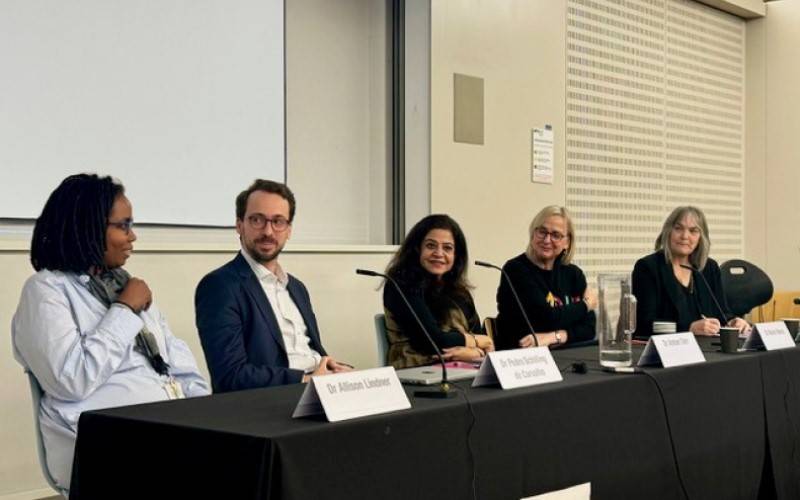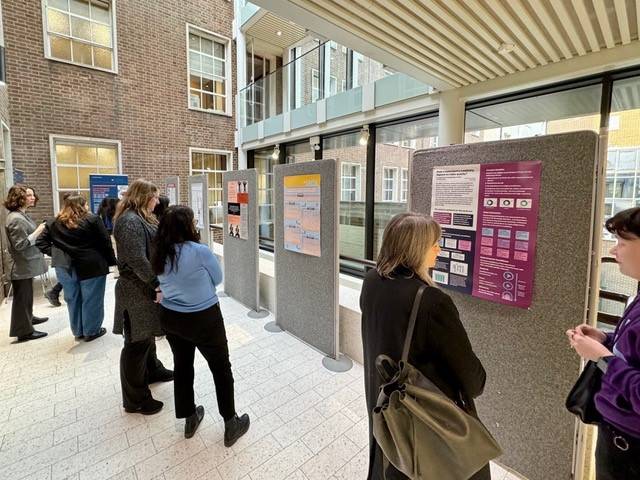Empirical legal research on show
2 May 2024
The Empirical Legal Research Conference showcased the broad range of empirical scholarship within the Faculty.

Displaying the broad and expanding base of empirical scholarship within UCL Laws, around 40 Faculty members, postgraduate research students and final year undergraduate students attended the Faculty’s first student focused Empirical Legal Research Conference in Bentham House on 20 March 2024.
The internal event, organised by the UCL Centre for Empirical Legal Studies and opened by Dean of UCL Laws Professor Eloise Scotford, provided an important opportunity for emerging empirical scholars to showcase their work and engage with some of the diverse expert empirical researchers within the Faculty.
The conference commenced with an interview of Professor Dame Hazel Genn, by Professor Pascoe Pleasence, in which she starkly revealed she only became an empirical legal scholar because, as a young social scientist, she serendipitously responded to an advert looking for assistance on a new crime victim survey being conducted at the Institute of Criminology in Cambridge. She went on describe the unique technical and logistical challenges that continue to act as a barrier to rigorous empirical legal research, her disappointment that civil law focused empirical research has yet to find the scale or identity of criminology, but ended with cautious optimism that empirical legal research is now being more broadly embraced by younger researchers.
A second session saw three of the Faculty’s doctoral students present their work in progress, with a focus on their choice of empirical methods, as well as answer questions from the floor. Natalia Morales Cerda described how she always intended to focus her research into the experience of women’s political representation in Chile’s 2019-2022 constitution-making process on a programme of semi-structured interviews. Meanwhile, Sonam Gordhan and Tasneem Ghazi explained how it was only during their studies that they came to appreciate an empirical picture of context and real world practice would be essential to their research into, respectively, the role of courts in responding to climate change and the use and scrutiny of delegated legislation in different jurisdictions.

A final Question Time session, chaired by Professor Cheryl Thomas, saw a panel of relatively new members of the Faculty – Dr Amber Darr, Dr Allison Lindner, Dr Karen Nokes and Dr Pedro Schilling De Carvalho – show off the diversity of experience and empirical scholarship now established within the Faculty. As well as providing insights from very different disciplinary perspectives, the panel was also challenged by Associate Professor Isra Black to consider the extent to which doctrinal legal research is a form of empirical research.

Throughout the conference, research posters produced by final year undergraduate students, as part of their Law and Social Inquiry studies and on display in the Cissy Chu Common Room, also provided a catalyst for discussion.
The Centre for Empirical Legal Studies intends to build on the conference in the coming months by inviting the Faculty’s empirical scholars to come together to take part in a mapping exercise to fully gauge the level and forms of empirical expertise within the Faculty. This exercise will seek to identify areas of overlap in interests and the potential for both collaboration and support for junior researchers in developing skills and undertaking empirical research.
There are also plans for a second empirical legal research conference, involving a broader array of students. Details will be revealed in due course.
 Close
Close

